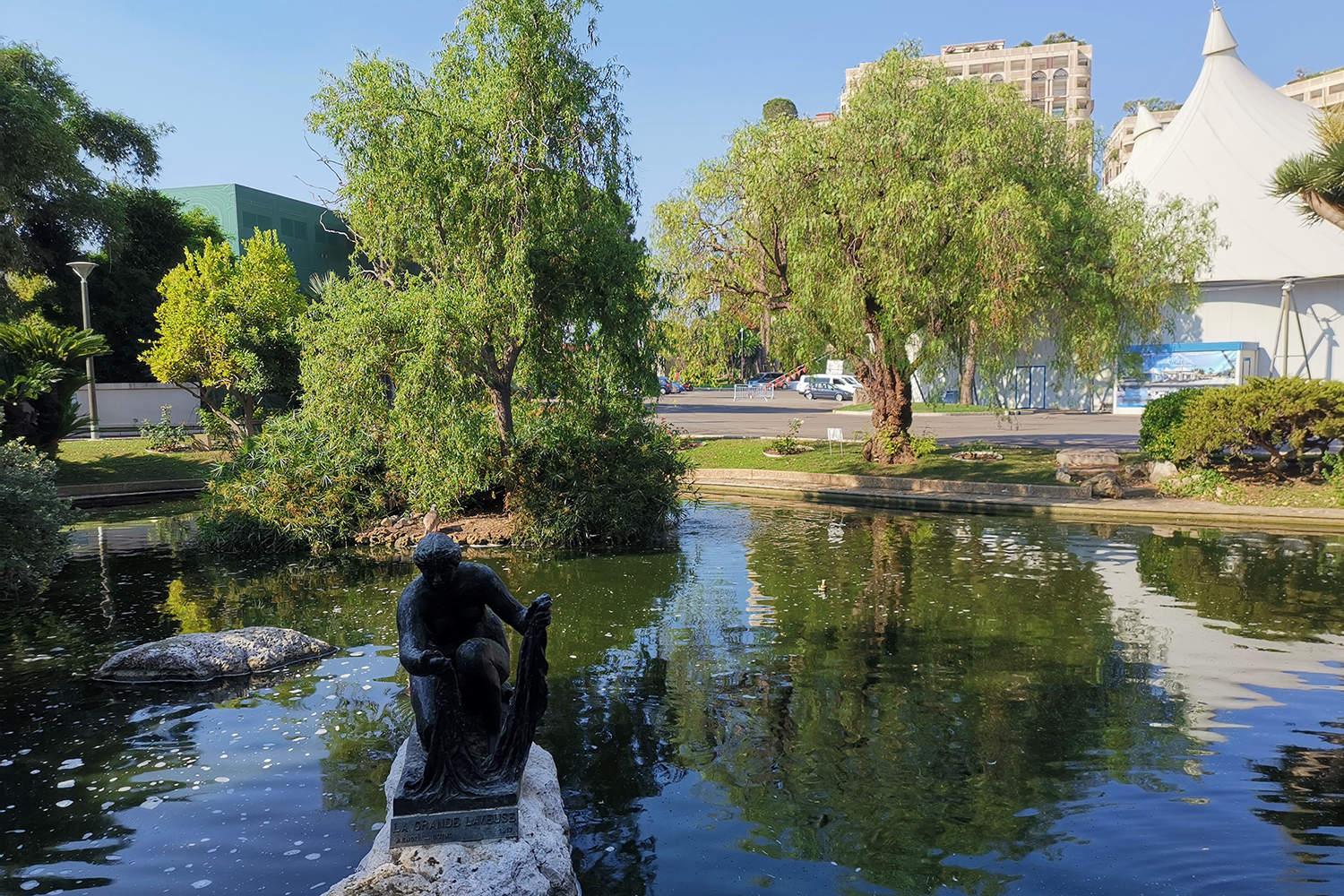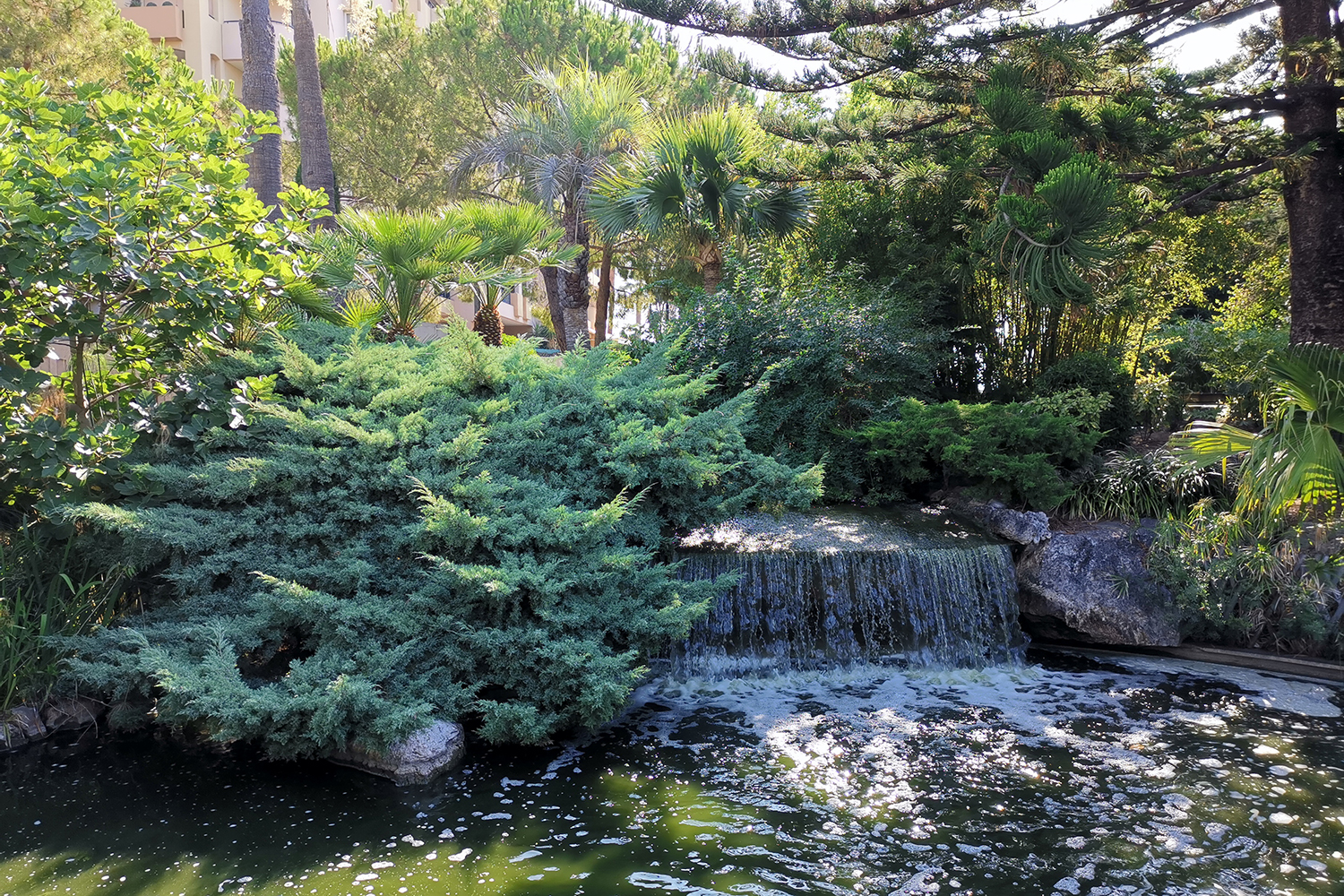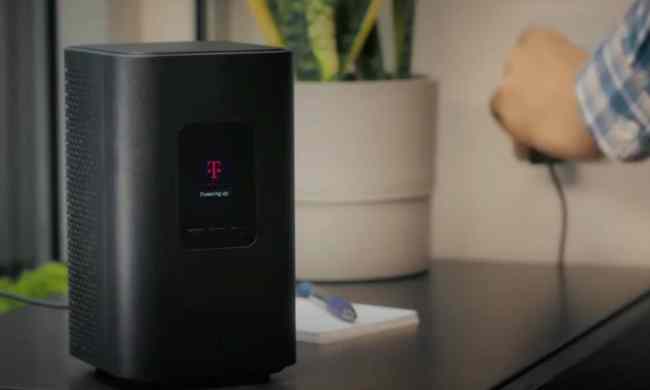“The big, bold Huawei Mate 20 X 5G, when connected to the right network, is a glimpse of the 5G future we’ve been hyped about.”
- Large, attractive screen
- Fast and capable performance
- Great camera
- 5G speeds are fast
- Will be too large for small hands
- 5G isn’t ready for regular use yet
You know that bit in Star Wars where Han, Luke, and Ben Kenobi come out of lightspeed in the Millennium Falcon and exclaim the Death Star is too big to be a space station? That’s what it’s like when you first see the Huawei Mate 20 X 5G. It looks too big to be a smartphone. There’s a 7.2-inch screen, which is larger than the first Google Nexus tablet, but being giant is not what makes the Mate 20 X 5G special. The clue is in the name, because this is the first 5G phone Huawei has released, and I’ve been testing it out.
To do that, I went to Monaco, the first country in the world to have complete 5G coverage. Using the Mate 20 X 5G in Monaco is like living in the near future. Almost everywhere I went, the phone showed and connected to a stable 5G signal, and often returned speeds that would put the Millennium Falcon to shame.
Network speeds
5G tests have been mostly disappointing affairs so far. Not so in Monaco. Connected to the newly-launched Monaco Telecom network — the only network in Monaco, and built entirely using Huawei infrastructure equipment — the series of tests I ran on various Mate 20 X 5G devices saw download speeds consistently above 650Mbps (megabits per second), and on some occasions above 1Gbps (gigabits per second).
The Huawei Mate 20 X 5G on Monaco Telecom’s 5G network is a revelation.
Walking the streets in the evening, weaving my way past the busy Monte Carlo Casino and Cafe de Paris, then along past the incredible yachts in the bay, each time I checked the phone it had a strong 5G signal, and test results were always at 500Mbps or faster, according to the Ookla Speedtest app.
The striking part is the reliability and consistency, which at the moment for 5G is unique to Monaco. The signal is strong, I maintained a 5G connection, and received 5G speeds when the network indicator said it was connected to 5G. It may sound like a silly thing, but this is a problem we have encountered in other 5G tests elsewhere in the world. It should be added that the phone is only hardly responsible — this performance is largely down to the robust 5G network from Huawei and Monaco Telecom.

Although I didn’t have the ability to download any large files, I could scrub through 1080p videos on YouTube, and the wait time was almost zero for the video to start playing again, with no loss of quality. In previous 5G tests I’ve carried out, finding a spot to perform such a test was half the challenge. In Monaco, you can do it just about anywhere. Downloading a few speed test apps from Google Play, the 50MB files arrived instantaneously. Saying anything happens in “the blink of an eye” sounds like a cliché, but small files like these apps arrive without the download bar even having time to register the file has been downloaded and installed. Blink, and you will miss it.
The Huawei Mate 20 X 5G is a gentle giant that happens to be strapped to a rocket.
Upload speeds hover around 40Mbps, but I did see some at 90Mbps or a little higher. This is one of the first times we’re seeing upload speeds on 5G, and it’s nice to see it’s significantly higher than what you usually get in upload speeds on 4G LTE.
It’s worth mentioning that Monaco’s 4G LTE network is excellent on its own, and when the Mate 20 X 5G wasn’t in a 5G spot, it still achieved impressive speeds between 180Mbps and 320Mbps. Downsides? There is one, which I’ll come back to, but otherwise not much.
This is what the future of mobile connectivity really will be like. The Huawei Mate 20 X 5G on Monaco Telecom’s 5G network is a revelation, and using it finally delivers on all that hype we’ve heard surrounding the next-gen network so far. I didn’t want to give it back, because I would be forced to suffer from using pedestrian old 4G.
Powerful specs, notchy screen
The Huawei Mate 20 X 5G is fast not only because of the network to which it’s connected, but also because of the components inside working together in harmony. It’s the first Huawei phone to be sold with the Balong 5000 5G modem, which works in conjunction with the Kirin 980 processor and supported by 8GB of RAM. It’s a flagship specification 5G smartphone, which has considerable innovation inside.

For example, Huawei has used graphene and special vapor chambers to ensure the phone doesn’t overheat. I never noticed the phone getting hot at all, despite a high ambient temperature. If anything, the Huawei P30 Pro I also carried got hotter without any 5G activity at all. Huawei has been testing the phone internally and externally for many months, and it really shows. The Mate 20 X 5G feels like a final product, with none of the network-related glitches I’ve had on some other 5G phones.
Android 9.0 Pie with EMUI 9.1 was installed on the phone I tested, and it ran as smoothly and speedily as it does on the Huawei P30 Pro. Huawei is in the midst of a battle to do business with U.S. firms including Google, and there are question marks over how it will deliver updates in the future. But the company is confident it will at least deliver Android Q, and the Mate 20 X 5G is listed on the firm’s explanatory website as one of the phones that will receive the next version of Android.

The Mate 20 X 5G’s screen dominates like the male lead character in an E.L. James novel. The 7.2-inch OLED panel is gigantic in a good way, immersing you in photos and video just as you’d expect; but the benefits come elsewhere too. The viewfinder screen when using the camera makes it easier to frame your shots, for example, and even poorly-optimized mobile websites are far easier to read and navigate than they are on smaller screens. Huawei has given us some colorful and bright screens recently, and the Mate 20 X 5G continues that trend.
Perhaps the only disappointment is the notch. It’s a teardrop notch, and although it’s not especially intrusive, it’s larger than the one on the P30 Pro. We’re slowly getting used to no notch at all on our big phones, due to the introduction of pop-up cameras. The Mate 20 X 5G does have a slightly aging look because of it.
Derivative design
The aging look also applies to the design, as the Mate 20 X 5G is derivative of the Mate 20 and Mate 20 Pro released late in 2018. Although hardly old, it does look like a big version of a phone released last year, right down to the admittedly cool textured rear panel, which feels like the surface of a vinyl record. It does seem like Huawei started the square camera array trend we’re looking at for future phone releases though, and the symmetry of the Mate 20 X 5G is visually pleasing in a way the early images of the Google Pixel 4 and iPhone 11 can’t match.
What about the size? You won’t be shocked that it’s a big phone, but you may be surprised at the compact footprint. It’s 85mm wide, while many of the largest phones we use today come in at around 78mm, and at 8.3mm thick it’s not unmanageable in any way. In fact, it’s easy to hold due to a frame that doesn’t slip about in your hand, and that textured rear panel providing a good grip.

Ergonomically it’s impressive. I love the textured power key with its red flash of color so it’s easy to find using touch or a glance, and the fingerprint sensor on the back is perfectly placed so I located it each time without a problem. Although the sheer size of the device means using it with one hand is practically impossible under normal circumstances, EMUI lets you shrink the screen and keyboard down into the bottom left or right corner, making it easier to type and navigate. Even the 233 gram weight is evenly distributed, neatly avoiding the phone feeling ungainly.
Camera
The three Leica camera lenses are identical to the setup used on the Mate 20 Pro. That means a 40-megapixel main lens with an f/1.8 aperture, a 20-megapixel f/2.2 aperture ultra-wide lens, and an 8-megapixel, f/2.4 telephoto lens. It has a 3x optical zoom, a night mode, a wide-angle mode, and all the usual artificial intelligence features. In my limited time with the phone it took great photos — not overly saturated, packed with detail, and close enough to real life with just the right amount of added flair to make them shareable.
In low light, it’s excellent. It made me miss using the Mate 20 Pro, and reminded me how capable the camera is on last year’s Mate series flagship. Night mode isn’t as uncannily effective as it is on the P30 Pro, which is not a criticism, and it still leaves some atmosphere in night time shots.
The 3x zoom mode retains color and detail, but the 5x hybrid setting isn’t as good, and can’t compare with the P30 Pro’s 5x optical zoom. The big screen makes interacting with the camera app simple, and the large viewing area ensures framing a shot is easy, and identifying focal points faster than doing so on a smaller screen.
Battery life
Huawei has fitted a 4,200mAh battery inside the Mate 20 X 5G, and it’s probably a little too small for the job. This is the main downside of having a 5G connection on a phone now. My test phone used about 50% of its capacity during my afternoon of testing, and that was only a selection of speed tests, and using the camera. I had expected worse, but it’s still not fantastic.

It remained connected to the network all the time; but no apps were set up to deliver notifications. In the real world, I suspect hard use of the Mate 20 X 5G will see the battery struggle to last a full day, although the level of 5G connectivity and how hard it has to search for the signal will also have an impact on this. A longer term test will reveal more.
5G draws a lot of power, and batteries will have a hard time keeping up. This is not a situation unique to the Mate 20 X 5G: It’s one that plagues the first wave of 5G phones generally.
Release dates and conclusion
The Huawei Mate 20 X 5G is available in China and the U.K. starting July 26. It is also for sale in Monaco with Monaco Telecom, and in a few other select countries. It’s expensive, like most 5G phones, costing 1,000 British pounds (around $1,250). The Mate 20 X 5G is unlikely to launch in the U.S. considering Huawei is still on the Entity List.
If you’re a Monaco resident keen to give 5G a try, the Huawei Mate 20 X 5G is a great choice. I look forward to testing it in the U.K. where my experience so far hasn’t been as positive. Outside of the connection, the Mate 20 X 5G is great: The camera takes good pictures, the screen is big and attractive, the design is subtle without being boring, and it’s powerful for gaming.
After using the phone for a day, it wasn’t the intimidating behemoth I worried it would be. The Huawei Mate 20 X 5G is a gentle giant that happens to be strapped to a rocket.










